John Ruskin - Lectures on Architecture and Painting, Delivered at Edinburgh in November 1853
Здесь есть возможность читать онлайн «John Ruskin - Lectures on Architecture and Painting, Delivered at Edinburgh in November 1853» — ознакомительный отрывок электронной книги совершенно бесплатно, а после прочтения отрывка купить полную версию. В некоторых случаях можно слушать аудио, скачать через торрент в формате fb2 и присутствует краткое содержание. Жанр: foreign_antique, foreign_home, architecture_book, literature_19, visual_arts, на английском языке. Описание произведения, (предисловие) а так же отзывы посетителей доступны на портале библиотеки ЛибКат.
- Название:Lectures on Architecture and Painting, Delivered at Edinburgh in November 1853
- Автор:
- Жанр:
- Год:неизвестен
- ISBN:нет данных
- Рейтинг книги:5 / 5. Голосов: 1
-
Избранное:Добавить в избранное
- Отзывы:
-
Ваша оценка:
- 100
- 1
- 2
- 3
- 4
- 5
Lectures on Architecture and Painting, Delivered at Edinburgh in November 1853: краткое содержание, описание и аннотация
Предлагаем к чтению аннотацию, описание, краткое содержание или предисловие (зависит от того, что написал сам автор книги «Lectures on Architecture and Painting, Delivered at Edinburgh in November 1853»). Если вы не нашли необходимую информацию о книге — напишите в комментариях, мы постараемся отыскать её.
Lectures on Architecture and Painting, Delivered at Edinburgh in November 1853 — читать онлайн ознакомительный отрывок
Ниже представлен текст книги, разбитый по страницам. Система сохранения места последней прочитанной страницы, позволяет с удобством читать онлайн бесплатно книгу «Lectures on Architecture and Painting, Delivered at Edinburgh in November 1853», без необходимости каждый раз заново искать на чём Вы остановились. Поставьте закладку, и сможете в любой момент перейти на страницу, на которой закончили чтение.
Интервал:
Закладка:
"Each purple peak, each flinty spire ,
Was bathed in floods of living fire."
Take away from Scott's romances the word and idea turret , and see how much you would lose. Suppose, for instance, when young Osbaldistone is leaving Osbaldistone Hall, instead of saying "The old clock struck two from a turret adjoining my bedchamber," he had said, "The old clock struck two from the landing at the top of the stair," what would become of the passage? And can you really suppose that what has so much power over you in words has no power over you in reality? Do you think there is any group of words which would thus interest you, when the things expressed by them are uninteresting?
23. For instance, you know that, for an immense time back, all your public buildings have been built with a row of pillars supporting a triangular thing called a pediment. You see this form every day in your banks and clubhouses, and churches and chapels; you are told that it is the perfection of architectural beauty; and yet suppose Sir Walter Scott, instead of writing, "Each purple peak, each flinty spire," had written, "Each purple peak, each flinty 'pediment.'" 12Would you have thought the poem improved? And if not, why would it be spoiled? Simply because the idea is no longer of any value to you; the thing spoken of is a nonentity. These pediments, and stylobates, and architraves never excited a single pleasurable feeling in you—never will, to the end of time. They are evermore dead, lifeless, and useless, in art as in poetry, and though you built as many of them as there are slates on your house-roofs, you will never care for them. They will only remain to later ages as monuments of the patience and pliability with which the people of the nineteenth century sacrificed their feelings to fashions, and their intellects to forms. But on the other hand, that strange and thrilling interest with which such words strike you as are in any wise connected with Gothic architecture—as for instance, Vault, Arch, Spire, Pinnacle, Battlement, Barbican, Porch, and myriads of such others, words everlastingly poetical and powerful whenever they occur,—is a most true and certain index that the things themselves are delightful to you, and will ever continue to be so. Believe me, you do indeed love these things, so far as you care about art at all, so far as you are not ashamed to confess what you feel about them.
24. In your public capacities, as bank directors, and charity overseers, and administrators of this and that other undertaking or institution, you cannot express your feelings at all. You form committees to decide upon the style of the new building, and as you have never been in the habit of trusting to your own taste in such matters, you inquire who is the most celebrated, that is to say, the most employed, architect of the day. And you send for the great Mr. Blank, and the Great Blank sends you a plan of a great long marble box with half-a-dozen pillars at one end of it, and the same at the other; and you look at the Great Blank's great plan in a grave manner, and you dare say it will be very handsome; and you ask the Great Blank what sort of a blank check must be filled up before the great plan can be realized; and you subscribe in a generous "burst of confidence" whatever is wanted; and when it is all done, and the great white marble box is set up in your streets, you contemplate it, not knowing what to make of it exactly, but hoping it is all right; and then there is a dinner given to the Great Blank, and the morning papers say that the new and handsome building, erected by the great Mr. Blank, is one of Mr. Blank's happiest efforts, and reflects the greatest credit upon the intelligent inhabitants of the city of so-and-so; and the building keeps the rain out as well as another, and you remain in a placid state of impoverished satisfaction therewith; but as for having any real pleasure out of it, you never hoped for such a thing. If you really make up a party of pleasure, and get rid of the forms and fashion of public propriety for an hour or two, where do you go for it? Where do you go to eat strawberries and cream? To Roslin Chapel, I believe; not to the portico of the last-built institution. What do you see your children doing, obeying their own natural and true instincts? What are your daughters drawing upon their cardboard screens as soon as they can use a pencil? Not Parthenon fronts, I think, but the ruins of Melrose Abbey, or Linlithgow Palace, or Lochleven Castle, their own pure Scotch hearts leading them straight to the right things, in spite of all that they are told to the contrary. You perhaps call this romantic, and youthful, and foolish. I am pressed for time now, and I cannot ask you to consider the meaning of the word "Romance." I will do that, if you please, in next lecture, for it is a word of greater weight and authority than we commonly believe. In the meantime, I will endeavor, lastly, to show you, not the romantic, but the plain and practical conclusions which should follow from the facts I have laid before you.
25. I have endeavored briefly to point out to you the propriety and naturalness of the two great Gothic forms, the pointed arch and gable roof. I wish now to tell you in what way they ought to be introduced into modern domestic architecture.
You will all admit that there is neither romance nor comfort in waiting at your own or at any one else's door on a windy and rainy day, till the servant comes from the end of the house to open it. You all know the critical nature of that opening—the drift of wind into the passage, the impossibility of putting down the umbrella at the proper moment without getting a cupful of water dropped down the back of your neck from the top of the door-way; and you know how little these inconveniences are abated by the common Greek portico at the top of the steps. You know how the east winds blow through those unlucky couples of pillars, which are all that your architects find consistent with due observance of the Doric order. Then, away with these absurdities; and the next house you build, insist upon having the pure old Gothic porch, walled in on both sides, with its pointed arch entrance and gable roof above. Under that, you can put down your umbrella at your leisure, and, if you will, stop a moment to talk with your friend as you give him the parting shake of the hand. And if now and then a wayfarer found a moment's rest on a stone seat on each side of it, I believe you would find the insides of your houses not one whit the less comfortable; and, if you answer me, that were such refuges built in the open streets, they would become mere nests of filthy vagrants, I reply that I do not despair of such a change in the administration of the poor laws of this country, as shall no longer leave any of our fellow creatures in a state in which they would pollute the steps of our houses by resting upon them for a night. But if not, the command to all of us is strict and straight, "When thou seest the naked, that thou cover him, and that thou bring the poor that are cast out to thy house ." 13Not to the work-house, observe, but to thy house: and I say it would be better a thousandfold, that our doors should be beset by the poor day by day, than that it should be written of any one of us, "They reap every one his corn in the field, and they gather the vintage of the wicked. They cause the naked to lodge without shelter, that they have no covering in the cold. They are wet with the showers of the mountains, and embrace the rock, for want of a shelter." 14
Конец ознакомительного фрагмента.
Текст предоставлен ООО «ЛитРес».
Прочитайте эту книгу целиком, купив полную легальную версию на ЛитРес.
Читать дальшеИнтервал:
Закладка:
Похожие книги на «Lectures on Architecture and Painting, Delivered at Edinburgh in November 1853»
Представляем Вашему вниманию похожие книги на «Lectures on Architecture and Painting, Delivered at Edinburgh in November 1853» списком для выбора. Мы отобрали схожую по названию и смыслу литературу в надежде предоставить читателям больше вариантов отыскать новые, интересные, ещё непрочитанные произведения.
Обсуждение, отзывы о книге «Lectures on Architecture and Painting, Delivered at Edinburgh in November 1853» и просто собственные мнения читателей. Оставьте ваши комментарии, напишите, что Вы думаете о произведении, его смысле или главных героях. Укажите что конкретно понравилось, а что нет, и почему Вы так считаете.
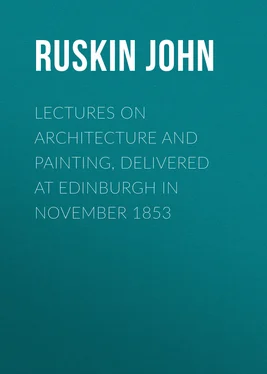

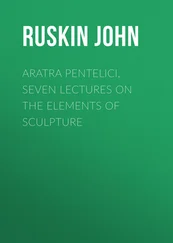

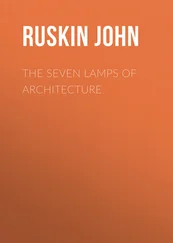



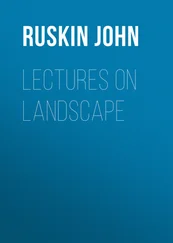

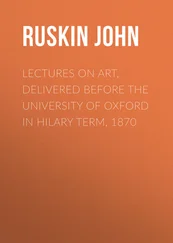
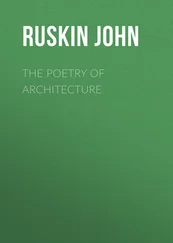
![John Bruce - The Lettsomian Lectures on Diseases and Disorders of the Heart and Arteries in Middle and Advanced Life [1900-1901]](/books/749387/john-bruce-the-lettsomian-lectures-on-diseases-and-disorders-of-the-heart-and-arteries-in-middle-and-advanced-life-1900-1901-thumb.webp)